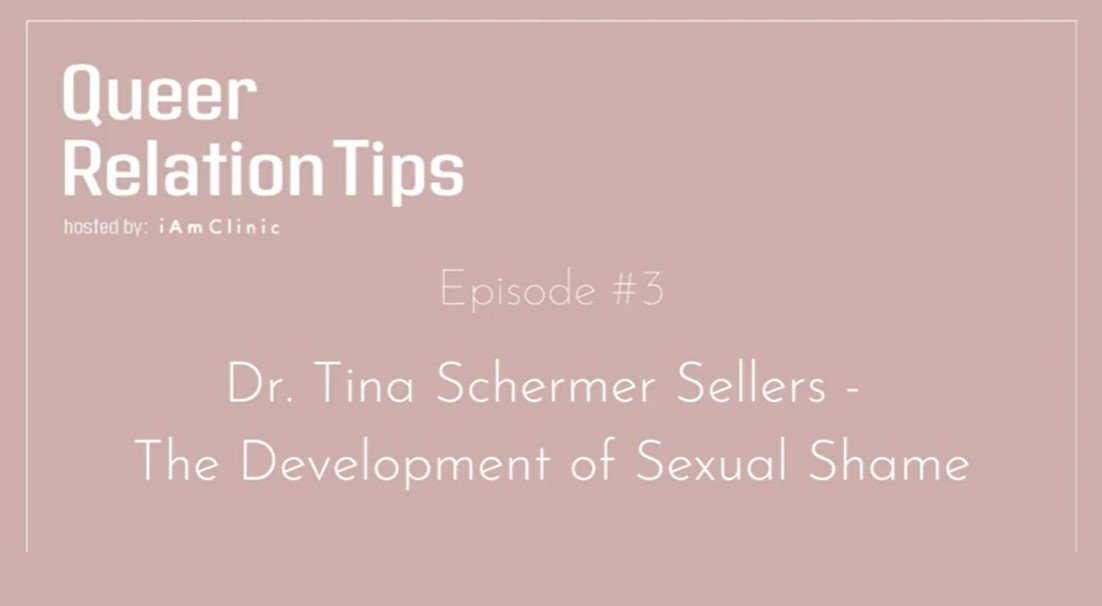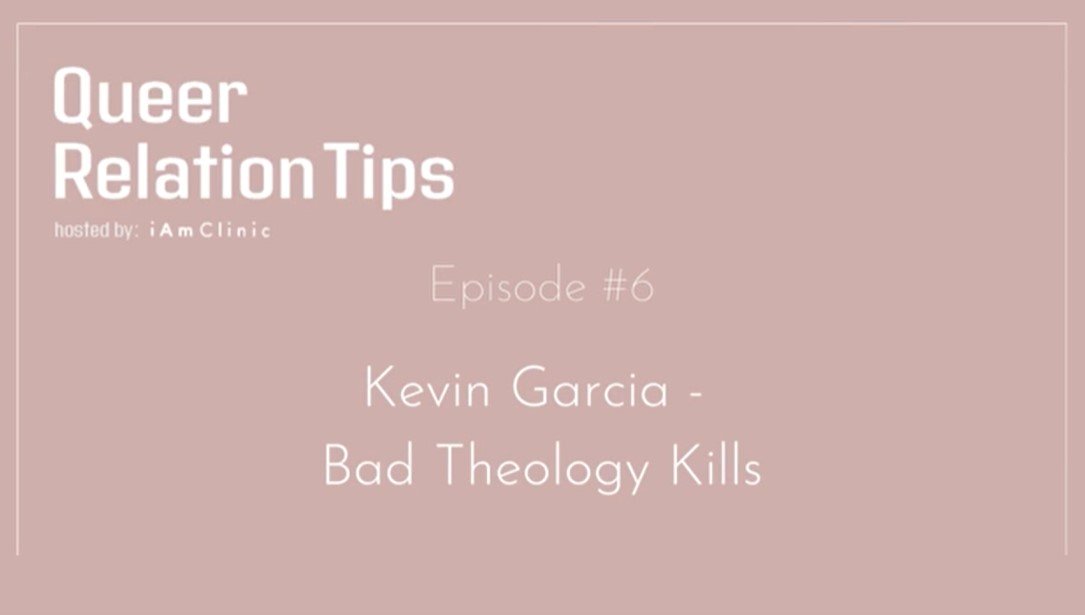Table Of Contents
- Embracing the Erotic: Redefining Sexuality and Relationships With Dr. Tina Schermer Sellers
- The First Shame: Unraveling Sexual Shame
- Redefining Sexuality: Embracing Connection and Pleasure
- Reclaiming Desire: Unraveling Relational Sexual Ambivalence
- The Hook-Up Culture and Open Relationships: Navigating Complexity
- Conclusion
Episode Summary
Host Isaac Archuleta sits with Dr. Tina Schermer Sellers, a licensed marriage and family therapist, certified sex therapist who holds a Ph.D. in clinical psycology, and author of Sex, God, and the Conservative Church: Erasing Shame from Sexual Intimacy. They discuss the way developmental trauma affects sexuality and how it can go on to affect adult sexuality.
For information about how to become a guest, visit us at iAmClinic.org.
Embracing the Erotic: Redefining Sexuality and Relationships With Dr. Tina Schermer Sellers
In this thought-provoking podcast transcript, Dr. Tina Sellers, a licensed marriage and family therapist and certified sex therapist, delves deep into the subject of sexual shame and its profound impact on our lives and relationships. As she engages in a conversation with Isaac Archuleta, founder, and CEO of I Am Clinic, they explore the complexities of modern relationships, including the hook-up culture and the dynamics of open relationships. Dr. Sellers offers valuable insights on the importance of redefining sexuality and understanding it as a force that transcends physical intimacy. Her discussions emphasize the significance of connection, pleasure, and self-nourishment in fostering healthy and fulfilling relationships.
The First Shame: Unraveling Sexual Shame
Dr. Sellers begins by shedding light on how sexual shame often emerges at a very early age, deeply influenced by societal and cultural conditioning. She highlights that our earliest sexual experiences can trigger shame, which becomes embedded in our subconscious, affecting our sense of self-worth and ability to form deep connections with others. Unfortunately, society often fails to provide comprehensive sex education, leaving individuals unprepared to confront and understand their desires in a healthy way. Dr. Sellers stresses the need for inclusive sex education to empower individuals to challenge unrealistic societal standards and embrace their authentic selves.
She further discusses how sexual shame can lead to a variety of issues in adulthood, affecting intimate relationships and personal well-being. These shame-based patterns can manifest as difficulty in trusting partners, defensiveness, or an inability to receive love and affirmation. Dr. Sellers emphasizes the importance of healing and understanding these deep-rooted wounds to pave the way for healthier relationships.
Redefining Sexuality: Embracing Connection and Pleasure
Moving beyond the confines of traditional definitions, Dr. Sellers advocates for a more inclusive perspective on sexuality. She emphasizes that sexuality encompasses more than just physical actions; it represents passion and connection, a powerful life force that enriches our relationships with ourselves and others. Dr. Sellers encourages individuals to explore their desires honestly, without judgment or shame, and to recognize that sexuality is about nourishing the mind, body, soul, and spirit.
Furthermore, she highlights the importance of embracing pleasure and connection in our relationships. She discusses how many couples struggle with prioritizing pleasure and intimacy in their busy lives, often neglecting each other’s needs and desires. Dr. Sellers suggests that incorporating intentional moments of joy, playfulness, and pleasure can lead to stronger emotional bonds and more satisfying relationships.
Reclaiming Desire: Unraveling Relational Sexual Ambivalence
Dr. Sellers and Isaac delve into the concept of relational sexual ambivalence, particularly within the LGBTQ+ community. Many individuals, seeking acceptance and belonging, find themselves caught between the desire for connection and the fear of rejection. The shadow of past experiences of hiding their true selves often haunts their present relationships, causing uncertainty and apprehension. Dr. Sellers offers valuable insights into navigating these complex emotions and embracing vulnerability to foster healthier and more authentic connections.
Moreover, Dr. Sellers discusses the importance of reclaiming desire in relationships. In a culture often saturated with sexualized media, individuals can become disconnected from their genuine desires. By exploring and understanding their true desires, individuals can cultivate a deeper connection with themselves and their partners. Dr. Sellers encourages open communication and vulnerability in expressing desires within relationships, promoting a more intimate and fulfilling bond.
The Hook-Up Culture and Open Relationships: Navigating Complexity
The podcast addresses the contemporary hook-up culture and the rise of open relationships. Dr. Sellers highlights that the exploration of open relationships is a relatively new area, and many individuals struggle to understand and manage the complexities that come with it. Open relationships can provide an avenue for individuals to explore their desires more freely, but they require open communication, trust, and self-awareness. Dr. Sellers suggests that individuals should seek support from therapists specializing in sex therapy to navigate these complex dynamics effectively.
Moreover, the hook-up culture is analyzed, and its implications are discussed. Dr. Sellers emphasizes that this culture often lacks meaningful connections, leaving individuals yearning for more profound intimacy. She urges individuals to prioritize authentic connections and communication over casual encounters, as true fulfillment can only be achieved through genuine emotional bonds.
Conclusion
As the podcast comes to an end, Dr. Sellers and Isaac leave the audience with a profound understanding of sexual shame and the importance of embracing sexuality as a force for connection and pleasure. Their enlightening discussions inspire individuals to challenge societal norms and embrace their authentic selves on their journey towards more satisfying and connected relationships. Dr. Sellers’ emphasis on comprehensive sex education, mindfulness, and self-nourishment serves as a beacon of hope, guiding individuals towards forming meaningful connections that enrich their lives and the lives of their partners. By adopting a more inclusive and compassionate view of sexuality, we can pave the way for healthier and more fulfilling relationships, free from the shackles of shame and judgment. Embracing the erotic as a force of connection and pleasure empowers individuals to lead more fulfilling lives, allowing love and authenticity to flourish in their relationships.






